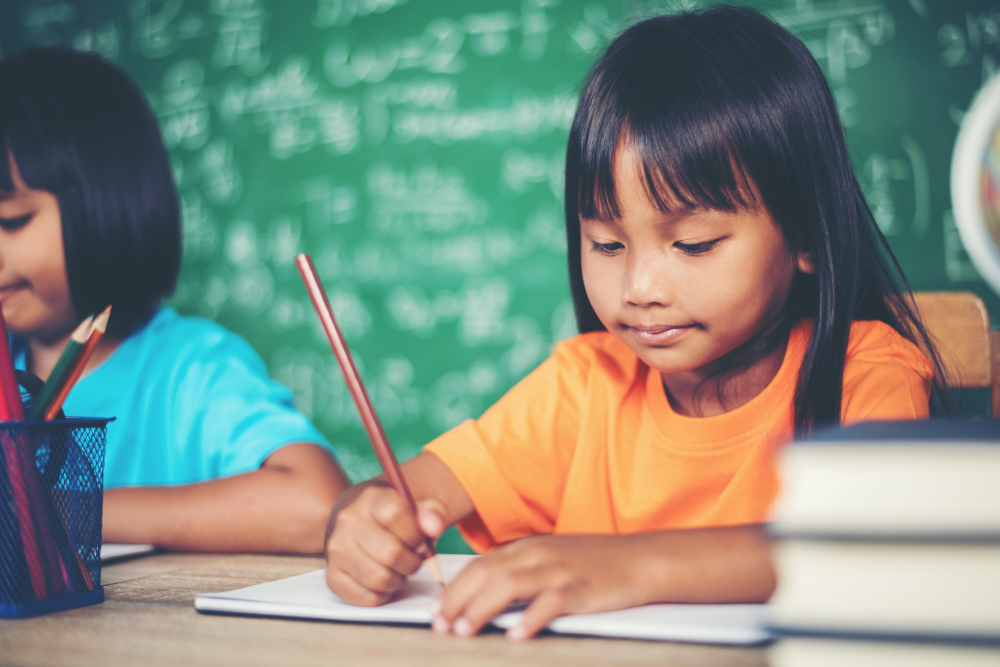Get a free exercise
Will Artificial Intelligence Transform Standardized Testing?
The journey toward standardized testing with the integration of artificial intelligence is fraught with challenges, ethical considerations, and cautious optimism.
Date of writing
December 20, 2024
Time of reading
2 minutes
The future of standardized testing could be on the brink of transformation with the integration of artificial intelligence (AI), as stated in Education Week. But the journey toward this innovation is fraught with challenges, ethical considerations, and cautious optimism.
Educators have long criticized state standardized tests for various reasons, including:
According to Ikkyu Choi, a senior research scientist at ETS, AI could enable tests to become more engaging and relevant. “AI may provide scenarios and interactions that measure critical thinking and communication,” he noted. AI-powered tools like natural language processing could assess creativity and problem-solving, offering insights beyond multiple-choice answers.
AI might also streamline test development and grading, producing better test items and scoring richer responses faster. For instance, AI could analyze a student’s multi-step problem-solving process, giving partial credit for critical thinking, even if the final answer is incorrect.
Despite its potential, AI faces significant obstacles:
A notable step forward is the 2025 edition of the Program for International Student Assessment (PISA), which will feature AI-powered performance tasks. These tasks aim to evaluate problem-solving and learning approaches rather than rote knowledge.
This development aligns with educators’ calls to create assessments that better reflect skills needed for success in higher education and the workforce. Lillian Pace from KnowledgeWorks remarked, “We are missing the picture entirely on whether we’re preparing students for success.”
However, Joanna Gorin from ACT emphasized that implementing such changes at scale would require significant data collection, experimental testing, and funding. Full-scale adoption of AI-driven assessments for K-12 standardized testing remains a distant reality.
In the short term, AI is more likely to influence classroom assessments, where teachers are already experimenting with AI to create personalized exams. One in six teachers has used AI for this purpose, according to a survey by the EdWeek Research Center.
AI could help generate questions tailored to students’ interests, such as using a baking recipe to test fractions for one student and a football field’s dimensions for another. While personalization might begin in classroom tests, it faces cost and fairness hurdles for state-level exams.
Experts predict a gradual integration of AI into standardized testing. Matt Johnson of ETS described it as a “slow creep” of changes, starting with scenario-based tasks and small-scale personalization.
While AI holds promise for addressing the longstanding issues in standardized testing, its widespread adoption will take time, resources, and careful planning. For now, AI’s greatest impact may lie in enhancing the tests teachers create and administer in their classrooms.
Educators have long criticized state standardized tests for various reasons, including:
- Delayed Feedback: Teachers often receive test results months later, rendering the data less actionable for immediate instruction.
- Lack of Personalization: These exams do not cater to students’ diverse interests or learning needs.
- Irrelevant Measures: Tests frequently fail to capture the critical skills students need for real-world success.
According to Ikkyu Choi, a senior research scientist at ETS, AI could enable tests to become more engaging and relevant. “AI may provide scenarios and interactions that measure critical thinking and communication,” he noted. AI-powered tools like natural language processing could assess creativity and problem-solving, offering insights beyond multiple-choice answers.
AI might also streamline test development and grading, producing better test items and scoring richer responses faster. For instance, AI could analyze a student’s multi-step problem-solving process, giving partial credit for critical thinking, even if the final answer is incorrect.
Despite its potential, AI faces significant obstacles:
- Bias and Fairness: AI systems, trained on human-generated data, can inherit biases. For example, an AI tool graded an essay mentioning rap music lower than a similar one citing classical music.
- Accuracy Concerns: AI is not yet reliable enough to evaluate students' thought processes for high-stakes testing.
- Ethical Dilemmas: Parents and educators question whether machines can fairly assess subjective responses, such as essays.
A notable step forward is the 2025 edition of the Program for International Student Assessment (PISA), which will feature AI-powered performance tasks. These tasks aim to evaluate problem-solving and learning approaches rather than rote knowledge.
This development aligns with educators’ calls to create assessments that better reflect skills needed for success in higher education and the workforce. Lillian Pace from KnowledgeWorks remarked, “We are missing the picture entirely on whether we’re preparing students for success.”
However, Joanna Gorin from ACT emphasized that implementing such changes at scale would require significant data collection, experimental testing, and funding. Full-scale adoption of AI-driven assessments for K-12 standardized testing remains a distant reality.
In the short term, AI is more likely to influence classroom assessments, where teachers are already experimenting with AI to create personalized exams. One in six teachers has used AI for this purpose, according to a survey by the EdWeek Research Center.
AI could help generate questions tailored to students’ interests, such as using a baking recipe to test fractions for one student and a football field’s dimensions for another. While personalization might begin in classroom tests, it faces cost and fairness hurdles for state-level exams.
Experts predict a gradual integration of AI into standardized testing. Matt Johnson of ETS described it as a “slow creep” of changes, starting with scenario-based tasks and small-scale personalization.
While AI holds promise for addressing the longstanding issues in standardized testing, its widespread adoption will take time, resources, and careful planning. For now, AI’s greatest impact may lie in enhancing the tests teachers create and administer in their classrooms.

 Home
Home